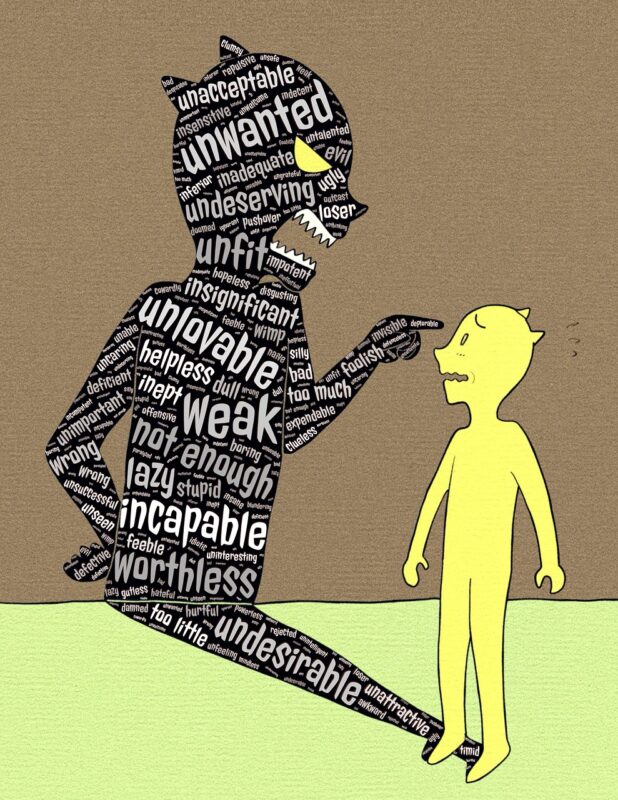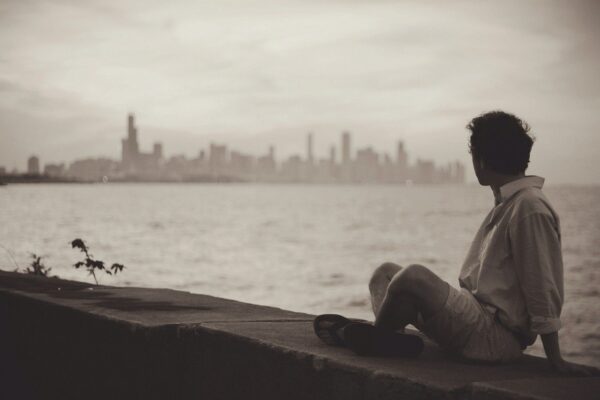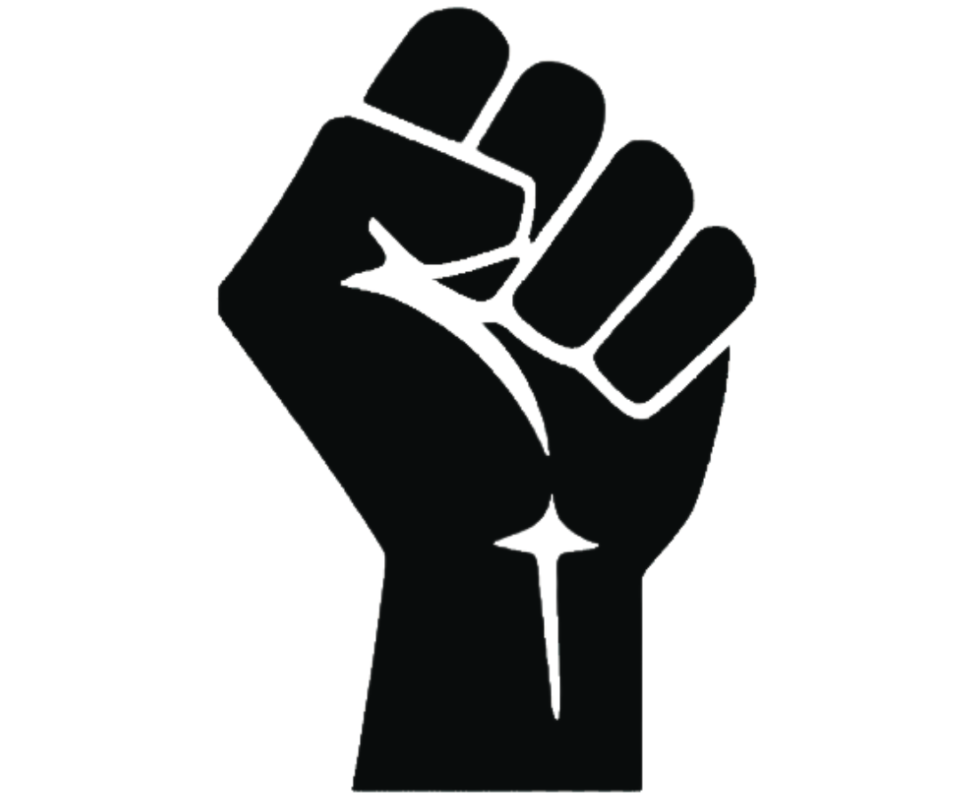
First, I’d like to say that, yes, you can make a difference in this world. It’s hard to see through our ego identifications and the subtle art of self-condemnation that we can contribute to positive change within our lives or in the lives of others. No matter what your story is, who you are, where you come from, or what you look like, the truth is that if you embrace your purpose and work on yourself, you can bring a lot more awareness and love to the world. Now, having said that, let’s jump into the topic because I want to share something quite eye-opening, especially when it comes to unlocking the next level of awareness that’ll help expand your consciousness. As we uncover the subtle art of condemnation, we become more aligned with our authentic selves and let go of any egoic thinking.
When we’re talking about egoic thinking, most people fall under the impression of having an unrealistic and grandiose sense of self, being self-absorbed, and having high self-esteem or a god-like complex. But in reality, you can have very low self-esteem, which is still egoic in nature. So whether it’s one extreme or the other, it is indeed egoic. Many people need to realize that anything considered egoic is not necessarily associated with something grand but quite the opposite. Behind all the masks we like to wear, most people on the inside think and feel inadequate and quite small. So, the purpose of this post is to help you gain more self-awareness to improve your quality of life and your understanding of self.
Conscious & Open

I have to admit that I was completely unaware of what the subtle art of self-condemnation actually entailed until my subconscious conspired and mirrored back how I truly felt about myself. All the mind-stuff, mental impressions, or Samskaras, as the Hindus call them. I knew about the inner critic, as I’ve discussed it briefly in other posts, but I finally became more aware of the subtle art of self-condemnation through various interactions with people close to me at the time. Speaking from experience, I can say that healing psychological wounds and subconscious triggers that run on auto-pilot from childhood stories can, at times, be easier, but there are other times when healing is not as accessible, and things are not as apparent, hence why I called this post the subtle art of self-condemnation.
There have been times, for instance, when I’ve done a lot of subconscious healing during sleep, and I was very well aware of what was happening on a subconscious level through my dreams. But there have been other times when I’ve had to re-program and re-wire my brain to heal from certain traumas and subconscious triggers through consistent effort and self-soothing techniques. We have to acknowledge that healing can become quite tricky because the ego does not want us to break free under the premise and illusion of keeping us safe. So, as I will dive deeper into the subtle art of self-condemnation, it’ll help you become more aware of what is hindering you from truly being open, getting outside your comfort zone, and being able to receive.
In new-age thinking, we often hear about the concept of becoming open to receiving. And people will tell you to simply stay open and ready to receive. But what does it really mean? If we’re not ready because our level of consciousness is actually preventing us from staying open and ready to receive, and if we need to do more inner work to understand what it means both subconsciously and consciously, then we can’t really make it work for us. This is why I want to focus on this topic and share my experience with you. You have to remember that everyone is on a different level of consciousness and all of us have our own rhythm of evolution and expansion, and some concepts discussed here may or may not click with you yet.
Nonetheless, this is a huge step toward becoming more conscious and fully realizing our co-creative powers. Whether we like it or not, and whether we are aware of it or not, the truth is that we are always co-creating our external reality. And as you go through that alchemical process and inner transformation, so will the external conditions and circumstances. Because the inner reflects the outer, and this is a Universal principle we can’t deny.
Chained To Lies | Subtle Art of Self-Condemnation

Unfortunately, the sad truth is that unknowingly, somewhere deep down, we are unconsciously practicing the subtle art of self-condemnation or self-punishment. For various reasons personal to us, on a subconscious level, we feel we need to punish ourselves and don’t deserve good things in life, whether it’s support and help from other people or the Universe itself. This is a reflection of how our parents or caretakers treated us and expressed or didn’t express their love to us during our childhood. Remember that what you feel deep down about yourself will reflect your psychological makeup and shape your external reality. The psyche and the Universe are indeed like the inner and outer worlds. So as you integrate this lesson, it will help you unlock the next level of consciousness you may be seeking
In my experience, coming from a home with two emotionally dysregulated caretakers and being exposed to ongoing narcissistic abuse, I’ve had to overcome many challenges on my own. And many things that happened back then were extremely hard to process, transmute, and understand, especially when you are an innocent child and empathic who’s just learning about the world. Now what happens is that we want to take all those burdens that come with that toxic environment, dysfunctional family, and abuse and make them our own because we develop the savior complex. We want to be the peacemaker, and we’re willing to completely lose and sacrifice ourselves just to keep the peace. Also, when dealing with narcissistic caretakers, it’s a bit different because everyone in the family has to self-sacrifice to cater and be of service to the narcissistic abuser. After all, it is the narcissist who plays the biggest victim and who needs help to stay happy and is always right.
This learned behavior of self-condemnation may derive from different factors because everyone’s upbringing and family dynamic will differ. For many, like myself, this learned behavior may derive from being scapegoated. Perhaps you were the one who always revealed the truth, so you were always targeted. Now, in an abusive environment, what happens in most cases is that the abuser will never take responsibility for their actions but will want to dump all of their burdens on an innocent child or whoever the scapegoat may be. Also, you must realize that as a child, when you make a mistake in an abusive environment, it will surely be blown out of proportion. And what you take from that traumatic experience is the need to stay with that negative emotion and notion of not feeling worthy and needing to self-condemn. If an abuser raised you, make no mistake, they will strip you of your worth from a very young age.
The subtle art of self-condemnation, as I like to call it, obviously stems from abuse and a dysfunctional family dynamic. You may live with this emotional pattern your entire life and not be aware of it unless you seek professional help, have some sort of epiphany, and are evolving spiritually throughout your journey. If you are working on yourself, there will come a time when you will have to confront this unconscious behavior pattern because it will no longer be a vibrational resonance to who you are becoming. You can no longer pretend it’s not happening on a subconscious level, and your external reality will certainly reflect and mirror back what has really been going on inside you for so long. It’ll happen because you can no longer live in that vibration of lies and distortions and are ready to wake up to the truth.
Wake Up Call | Subtle Art of Self- Condemnation

As I became more aware of the subtle art of self-condemnation, I wished I had realized the pattern sooner. I couldn’t believe I had lived with such distortions for so long. It was as if an entirely new world had opened up for me—a typical reaction when acquiring more self-awareness. I couldn’t believe I had never been able to understand that about myself. If you don’t realize that you are unconsciously practicing the art of self-condemnation every single day of your life, it’s a vibration in itself, an expression, and a state of being that shapes a limited reality. If you don’t realize any of it, you can go about your whole life feeling victimized and staying stuck in the trauma. You can live your entire life being at war with yourself and battling yourself and never understand why there is so much resistance to receiving help or good things in life. This is why it’s so important to tune in to your heart and become aware of your emotional patterns so that you heal any unconscious and negative blocks.
If you were raised in an abusive and toxic environment, it is very likely that you did not experience unconditional love. And as an adult, it becomes effortless to unconsciously punish yourself even for things that happened long ago in the past. As I mentioned, unconscious self-punishment will keep you at war with yourself and hinder you from feeling worthy and deserving of receiving. It’s your ego trying to keep you safe by keeping you stuck in that same emotional pattern that stemmed from your trauma. It’s something familiar that you’ve always known and internalized, and you decided to make it your permanent truth because of your trauma. Admitting that you are a good person is not easy if you were brought up in such an unfair and toxic environment. Realizing that you’ve done nothing wrong but done everything possible to survive and strive for harmony or even stand up to such an abusive and traumatizing environment requires a lot from someone who’s unconsciously blamed themselves their entire life.
It requires a lot from someone who’s carried the burdens of those who never take responsibility for their actions but gaslight, project, and wash their conscience clean by scapegoating others, even an innocent child. What you have to realize now as an adult, especially if you had the courage to stand up to physical, verbal, and emotional abuse your whole life, is that you don’t need another to validate you or tell you that you are worthy of receiving in life. All you have to do now is recognize the good within yourself and feel worthy of good. You are good, therefore, worthy of good. You don’t need any external validation, and you certainly don’t need validation from those same abusers who do not embrace inner change, whether they are your caretakers, ex-spouse, ex-friends, etc. You don’t have to internalize their projections anymore, and you no longer need their false opinions of you to limit your reality and perception.

